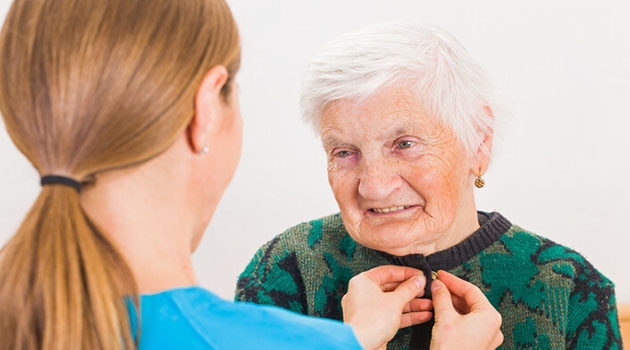Antibody treatment can help slow Alzheimer’s Disease
Alzheimer’s disease makes up about 60 per cent of all cases of dementia. There is still no cure or treatment that can slow the progression of the disease, only medications that can ease the symptoms. Uppsala University and Uppsala University Hospital, however, are now working with other university hospitals in a global study aimed at examining whether the antibody BAN2401 can slow the development of symptoms and changes in the brain.
Photo: Mikael Wallerstedt
“Slowing the development of Alzheimer’s disease would save patients and relatives considerable suffering. It would also save money for caregivers and society, considering demographic developments with an increasingly large percentage of the population being elderly,” says Martin Ingelsson, professor of geriatrics at Uppsala University and chief physician at Uppsala University Hospital in Uppsala.
Alzheimer’s disease gradually destroys brain tissue when neurons begin to break down and die at an abnormal rate. This leads to deterioration of memory and cognitive skills, such as intellectual capacity, language, orientation, recognition and learning. The disease progresses slowly, and it is not possible to determine an exact time for its onset. Normally, Alzheimer’s disease has a very long progression over many years.
Study with patients in the early phases of the disease
The global CLARITY study has patients in the early phases of the disease. These participating patients receive the potential medication, a monoclonal antibody (BAN2401), or an inactive placebo every other week at the Memory and Geriatric Clinic at Uppsala University Hospital. The study is being led by Professor Lena Kilander and involves a team of doctors, nurses and occupational therapists. The plan is to include a total of six patients.
“The antibody is given to reduce the amount of damaging amyloid beta, a misfolded protein that collects in the brain and is assumed to cause the disease. It was created from an antibody developed by the geriatrics research team at Rudbeck Laboratory in Uppsala under the leadership of Professor Lars Lannfelt,” explains Martin Ingelsson.
Promising results
This is the last clinical trial before the antibody can be approved and be made available for sale on the market. If the tests go well, it would be a huge breakthrough, according to Ingelsson. The previous phase II study showed promising results and included about 800 patients with early Alzheimer’s disease. After 18 months of treatment, cognitive decline, as measured with a specific estimation scale, was less among those who had received the highest dose of the pharmaceutical candidate than those who had received a placebo. Many of the patients in this treatment group also had a significant reduction in aggregates of amyloid beta in the brain.
Anna Malmberg

